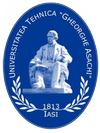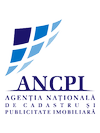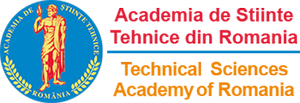Organizers
"Gheorghe Asachi" Technical University of Iaşi (TUIASI)

"Gheorghe Asachi" Technical University of Iaşi (TUIASI) has the oldest tradition in engineering education and research in Romania. Since its foundation, TUIASI has given priority to research, interdisciplinary approach, innovation, teaching and internationalisation. The main goal of developing "technology for the people around us" has always been at the core of TUIASI’s research, teaching and technological transfer activities.
Source and more informationRomanian Surveyors Union (UGR)
 Romanian Surveyor Union (U.G.R.) is a professional, independent, non-government and non-political organization, with a non-working character. It was established in 1990 through the initiative of geodetic engineers. One of the UGR objectives is to increase the prestige of geodesy and professional authority of surveyors. The UGR sustain and protect the professional and economic interests of its members, while presenting and promoting the importance of surveying activities. UGR initiate and propose laws regarding the surveying activities and surveyor role. Today UGR counts almost 1.100 members, organized in 47 local associations. Romanian Surveyors Union is member of FIG.
Romanian Surveyor Union (U.G.R.) is a professional, independent, non-government and non-political organization, with a non-working character. It was established in 1990 through the initiative of geodetic engineers. One of the UGR objectives is to increase the prestige of geodesy and professional authority of surveyors. The UGR sustain and protect the professional and economic interests of its members, while presenting and promoting the importance of surveying activities. UGR initiate and propose laws regarding the surveying activities and surveyor role. Today UGR counts almost 1.100 members, organized in 47 local associations. Romanian Surveyors Union is member of FIG.
Source and more information
Faculty of Hydrotechnics, Geodesy and Environmental Engineering
 At the Faculty of Hydrotechnics, Geodesy and Environmental Engineering, belonging to the "Gheorghe Asachi" Technical University of Iasi, organizing the "GEOMAT" International Symposium has become a tradition, this year being the eighth edition. The idea of organizing and continuously developing the scale of events arose as a result of the initiative of the Department of Surveying and Cadastre.
At the Faculty of Hydrotechnics, Geodesy and Environmental Engineering, belonging to the "Gheorghe Asachi" Technical University of Iasi, organizing the "GEOMAT" International Symposium has become a tradition, this year being the eighth edition. The idea of organizing and continuously developing the scale of events arose as a result of the initiative of the Department of Surveying and Cadastre.
Source and more information
Young Photogrammetrists Association
 Since 2017, the Young Photogrammetrists Association provides logistical support for the organization of the GEOMAT international symposium. Young researchers and students are encouraged to actively participate at the conference activities, to be well prepared to challenges that will occur through accelerated development of technology and also to concepts from the field of geomatics and environmental sciences.
Source and more information
Since 2017, the Young Photogrammetrists Association provides logistical support for the organization of the GEOMAT international symposium. Young researchers and students are encouraged to actively participate at the conference activities, to be well prepared to challenges that will occur through accelerated development of technology and also to concepts from the field of geomatics and environmental sciences.
Source and more information
Co - Organizers
National Agency of Cadastre and Land Registration (ANCPI)

NACLR is a Governmental organization, being affiliate to FIG. The institution is coordinating the surveying activity in Romania, having in its subordination the Offices of Cadastre and Land Registration (OCLR) from each county and Bucharest. NACLR represent the only authority on cartography, cadastre and Land Registration, which sets policy in specialized field, strategy and development regulations, and harmonization of specific activities within the general policy of the government and take steps to implement those policies through subordinate institutions. NACLR has the mission to regulate and manage the Integrated System of Cadastre and Land Registry in order to ensure the safety of property and civil circuit support economic growth of Romania.
Source and more information
Technical Sciences Academy of Romania
 Section X of Petroleum, Mining Engineering and Geonomy of Romanian Academy of Technical Sciences, includes scientists and specialists, Romanian and foreign, from the fields of petroleum engineering, mining, machine building, geology, geography, topography/cadastre, geonomy.
The scientific and technical economic objectives of section X concern the superior capitalization of useful mineral substances and their sustainable management, in good harmony with the environment.
For the development of human society a component of the greatest importance is the capitalization and processing of useful mineral substances (solids, liquids, gases) from the earth's crust, seas and oceans, even from the cosmos through mining, so mining and oil engineering is from scientifically inextricably linked to the geonomic and ecological sciences.
The word "geonomy" was used to describe the system of rational management of resources (for the meadow and the Danube delta) first in 1909, by biologist Grigore Antipa.
Geonomy is a well-defined science, both in theory and in practice: it studies the use, "consumption" and reaction of environments, but can also experiment and predict actions and solutions to problems. Descriptive starting from measures and tests, conceptual starting from modeling, and predictive through the perspective of the described phenomena, geonomy allows us to know under what conditions the transformations that affect our everyday life are elaborated. This (relatively) new science allows us to predict the consequences of our decisions and actions, through impact studies. It can show us what we need to do to increase our chances of surviving as a species on a constantly evolving planet, and what dangers our future may threaten.
Section X of Petroleum, Mining Engineering and Geonomy of Romanian Academy of Technical Sciences, includes scientists and specialists, Romanian and foreign, from the fields of petroleum engineering, mining, machine building, geology, geography, topography/cadastre, geonomy.
The scientific and technical economic objectives of section X concern the superior capitalization of useful mineral substances and their sustainable management, in good harmony with the environment.
For the development of human society a component of the greatest importance is the capitalization and processing of useful mineral substances (solids, liquids, gases) from the earth's crust, seas and oceans, even from the cosmos through mining, so mining and oil engineering is from scientifically inextricably linked to the geonomic and ecological sciences.
The word "geonomy" was used to describe the system of rational management of resources (for the meadow and the Danube delta) first in 1909, by biologist Grigore Antipa.
Geonomy is a well-defined science, both in theory and in practice: it studies the use, "consumption" and reaction of environments, but can also experiment and predict actions and solutions to problems. Descriptive starting from measures and tests, conceptual starting from modeling, and predictive through the perspective of the described phenomena, geonomy allows us to know under what conditions the transformations that affect our everyday life are elaborated. This (relatively) new science allows us to predict the consequences of our decisions and actions, through impact studies. It can show us what we need to do to increase our chances of surviving as a species on a constantly evolving planet, and what dangers our future may threaten.
Source and more information
Technical University of Civil Engineering București, Faculty of Geodesy
 The Faculty of Geodesy has an important tradition in the geodetic engineer education in Romania, which began in Bucharest in 1818, at the St. Sava School under the leadership of Gheorghe Lazar, in Romanian language. On the campus of Lacul Tei Blvd., Geodesy has been operating as a specialty since 1955, and in 1990 it became a faculty. The faculty has three departments: the Department of Surveying and Cadastre, the Department of Geodesy, Photogrammetry, Remote Sensing and the Department of Physics. The research activity is conducted within the Research Center for Geodetic Engineering Measurements and Spatial Data Infrastructures (MGDIIS) and Research Center for Spatial Geodesy, Photogrammetry, Remote Sensing and GIS (GEOS).
The Faculty of Geodesy has an important tradition in the geodetic engineer education in Romania, which began in Bucharest in 1818, at the St. Sava School under the leadership of Gheorghe Lazar, in Romanian language. On the campus of Lacul Tei Blvd., Geodesy has been operating as a specialty since 1955, and in 1990 it became a faculty. The faculty has three departments: the Department of Surveying and Cadastre, the Department of Geodesy, Photogrammetry, Remote Sensing and the Department of Physics. The research activity is conducted within the Research Center for Geodetic Engineering Measurements and Spatial Data Infrastructures (MGDIIS) and Research Center for Spatial Geodesy, Photogrammetry, Remote Sensing and GIS (GEOS).
Source and more information
"1 December 1918" University of Alba Iulia,
The Faculty of Exact Sciences and Engineering, Department of Topography.
 Since its establishment in 1991, the "1 decembrie 1918" University of Alba Iulia has defined its mission starting from the national significance of Alba Iulia and the area, the educational ideal being based on the valuable traditions of the Romanian high school. For over a quarter of a century, the University of Alba Iulia aims to contribute, through specific ways of education, research and value creation, to the preservation and affirmation of national identity, to the unity in diversity of Romanian culture, to its active integration in the European and universal circuit of values.
Since its establishment in 1991, the "1 decembrie 1918" University of Alba Iulia has defined its mission starting from the national significance of Alba Iulia and the area, the educational ideal being based on the valuable traditions of the Romanian high school. For over a quarter of a century, the University of Alba Iulia aims to contribute, through specific ways of education, research and value creation, to the preservation and affirmation of national identity, to the unity in diversity of Romanian culture, to its active integration in the European and universal circuit of values.
Source and more information